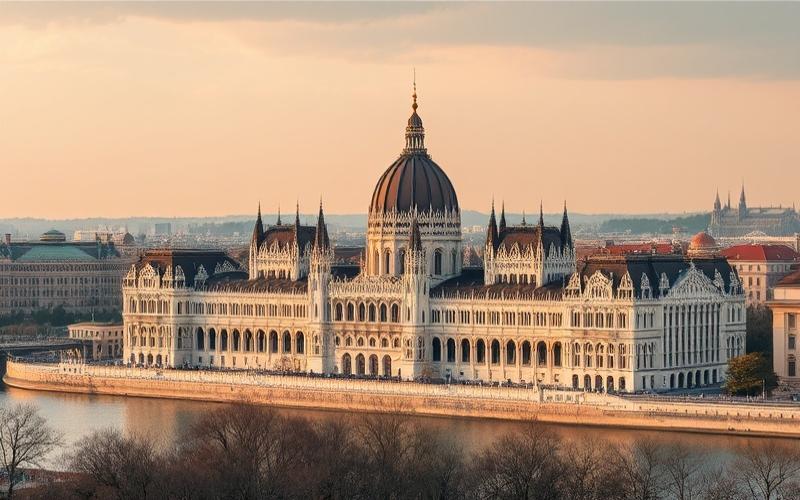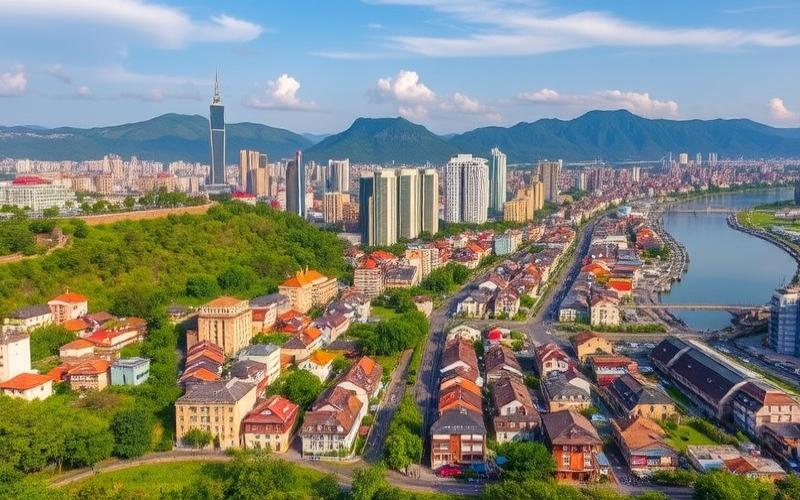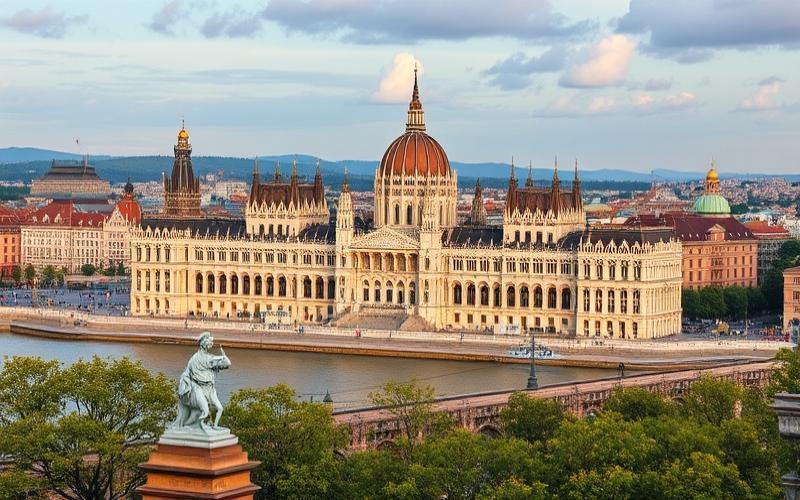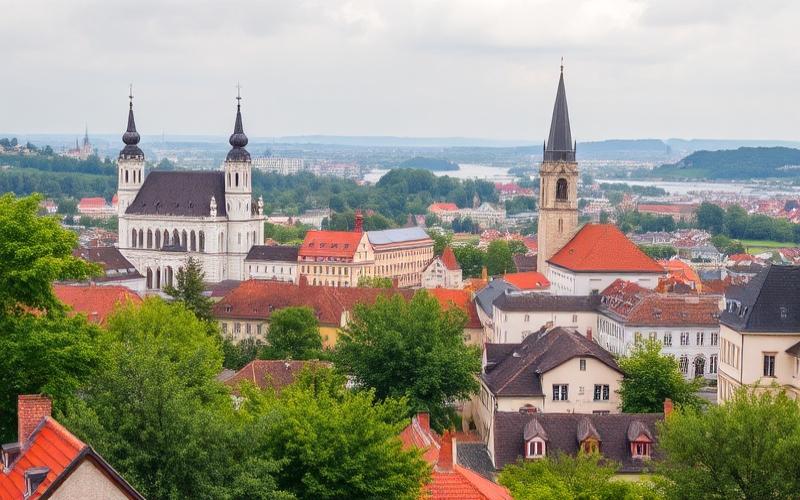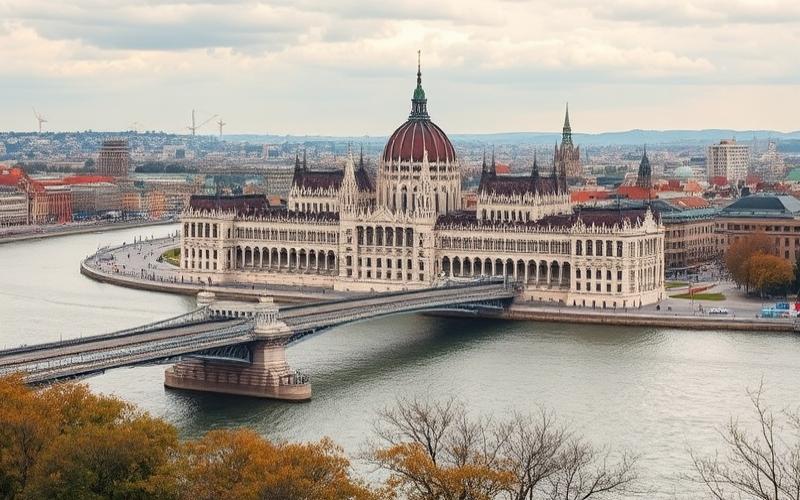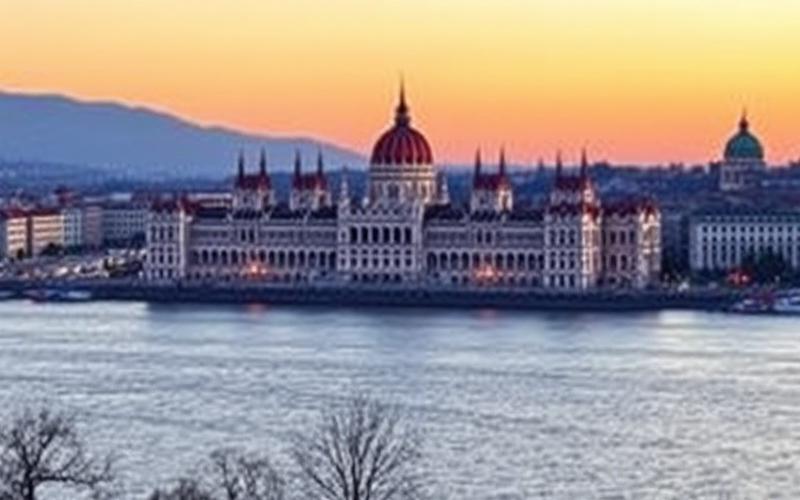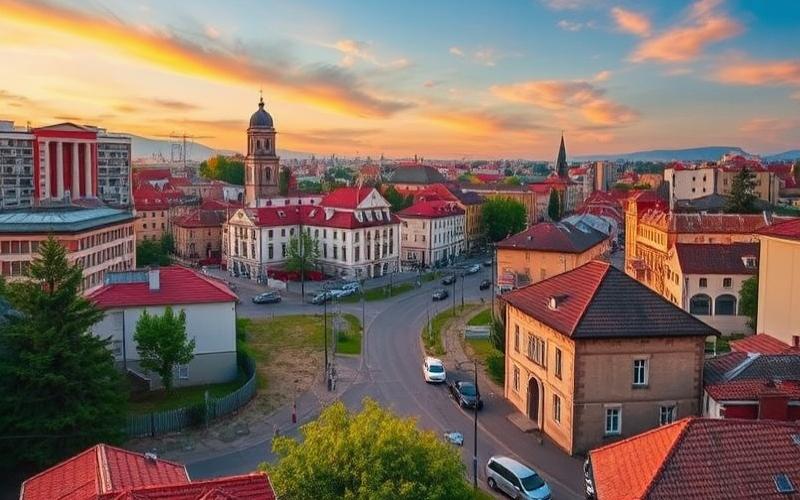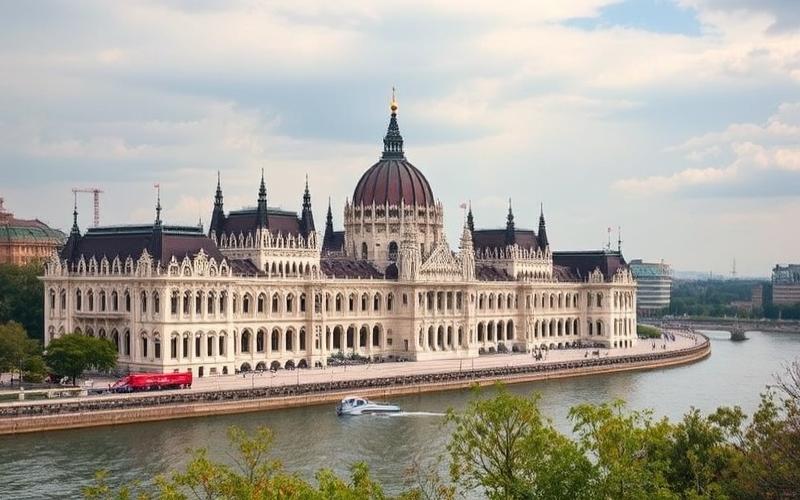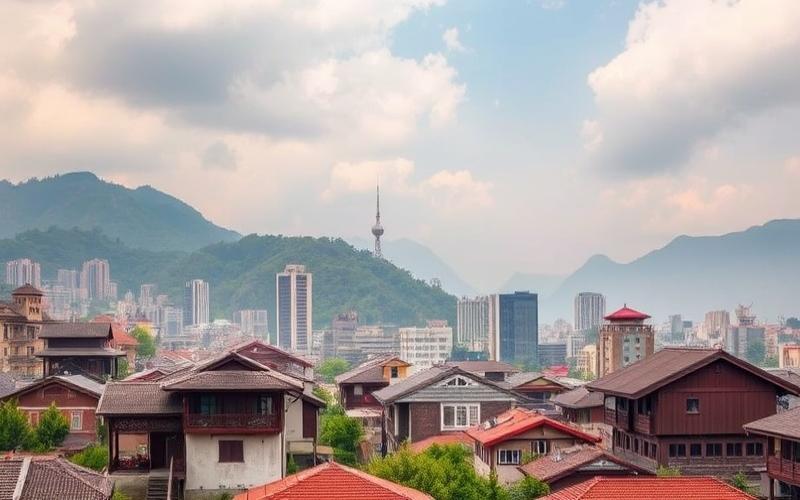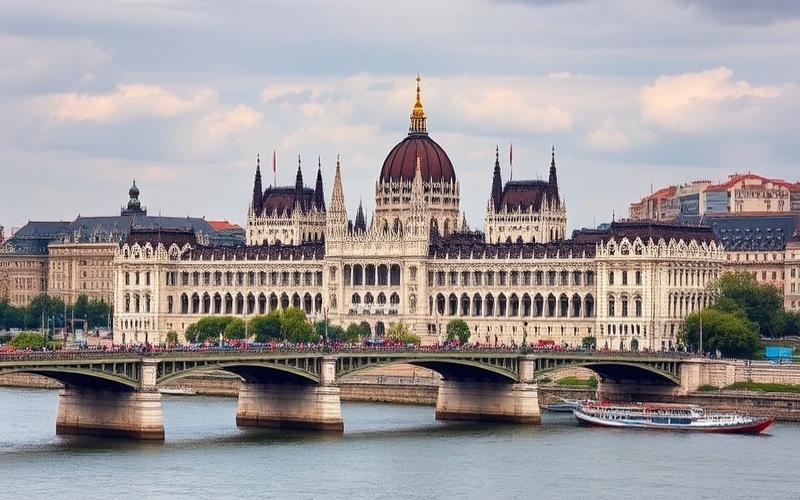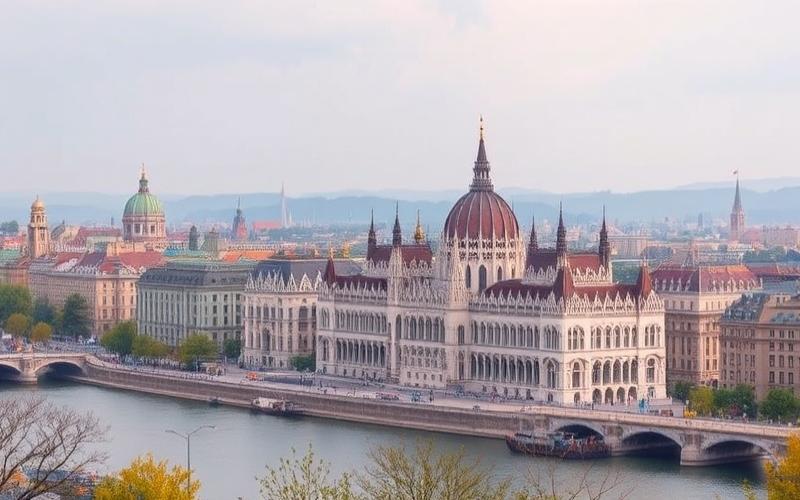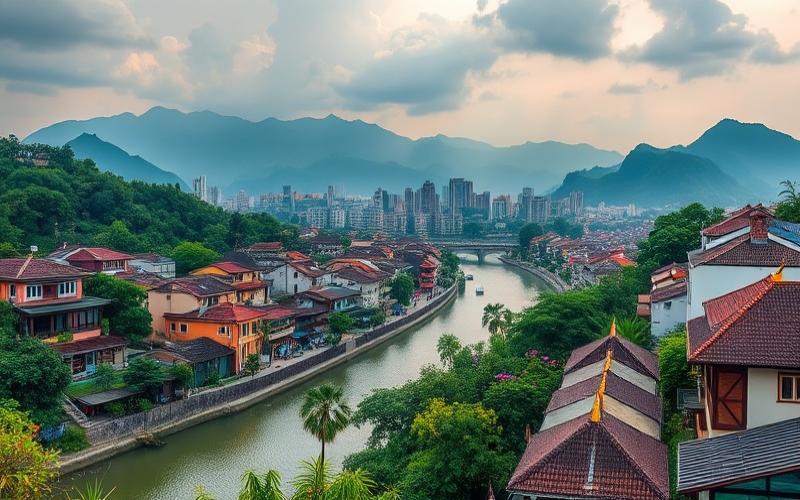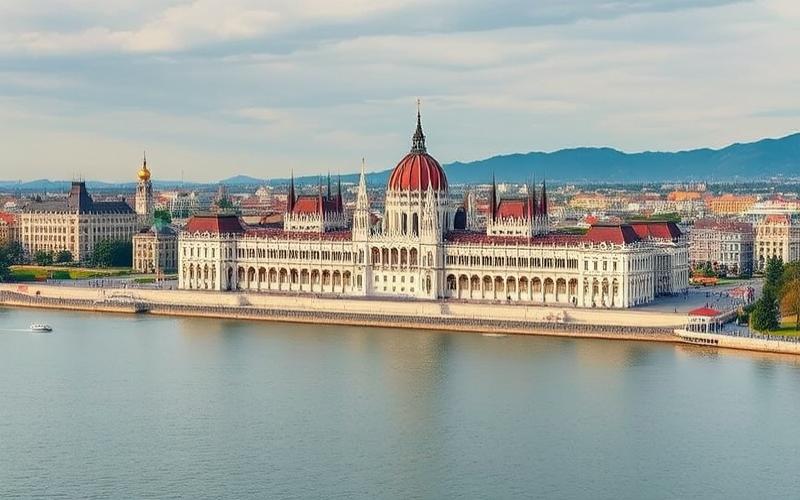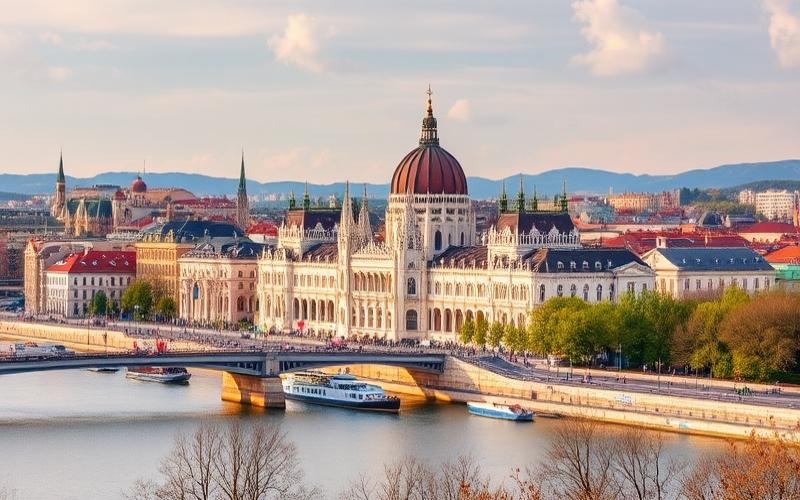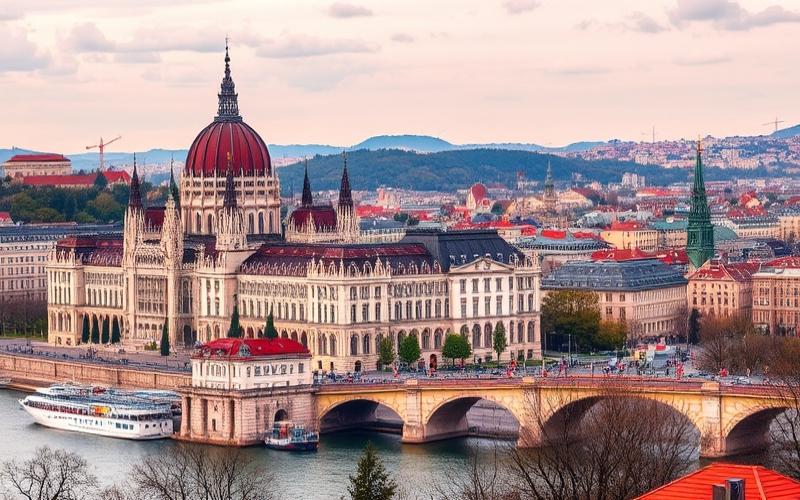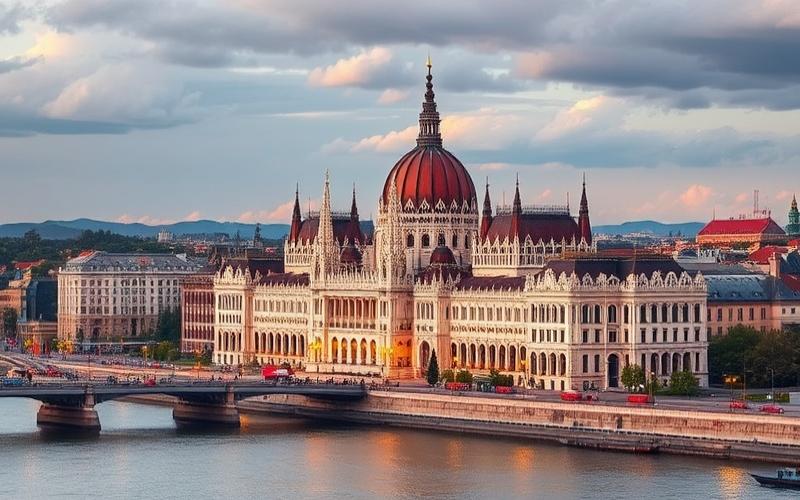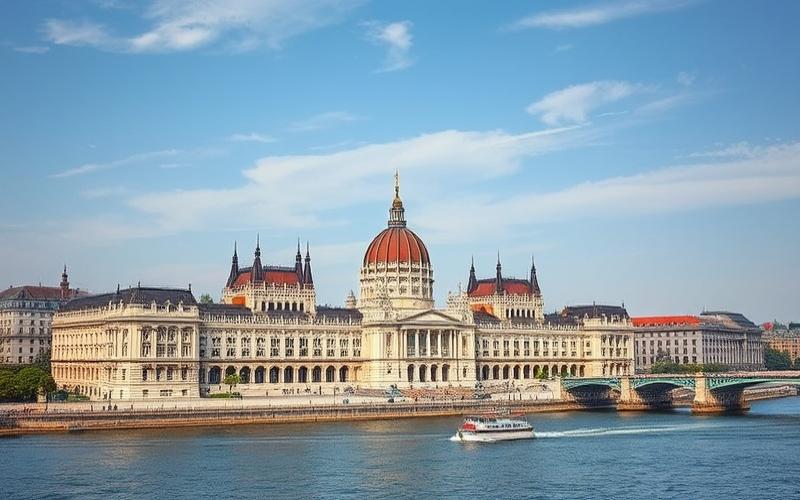
 Published on and written by Cyril Jarnias
Published on and written by Cyril Jarnias
Commercial real estate in Hungary, particularly in Budapest, offers particularly attractive investment opportunities for international investors. With a growing economy and a dynamic real estate market, Hungary is increasingly drawing attention from foreign investors seeking attractive returns and portfolio diversification.
A Range of Commercial Properties for Every Taste
The Hungarian commercial real estate market offers a wide variety of properties, suitable for different investor profiles and investment strategies. Here are the main types of commercial properties available in Hungary:
Office Buildings: Budapest, the Hungarian capital, is experiencing strong demand for modern, well-located office spaces. The office market is particularly dynamic in central districts like the 5th, 6th, and 7th districts, where numerous international companies and startups are concentrated.
Retail Spaces: Downtown Budapest’s shopping streets, such as Váci utca or Andrássy út, offer investment opportunities in luxury boutiques and stores. These premium locations attract both local and tourist clientele, ensuring high visibility for brands that establish themselves there.
Shopping Centers: Hungary has several modern shopping centers, mainly located in Budapest and other major cities across the country. These complexes offer a mix of retail, restaurants, and leisure spaces, attracting a diverse clientele.
Warehouses and Logistics: With the growth of e-commerce and Hungary’s strategic position in the heart of Central Europe, the logistics sector is experiencing significant growth. Industrial zones on the outskirts of Budapest and near major highways are particularly sought after for this type of investment.
Hotels and Tourist Accommodations: Tourism being a key sector of the Hungarian economy, investing in hotels or apartments for short-term rentals can be lucrative, especially in Budapest and the country’s spa towns.
- Modern office buildings in business districts
- Retail spaces on prime shopping streets
- Attractive shopping centers in major cities
- Strategically located warehouses and logistics platforms
- Hotels and tourist accommodations in high-potential areas
Good to Know:
The Hungarian commercial real estate market offers a great diversity of properties, allowing investors to choose the type of property best suited to their strategy and budget.
Attractive Returns, But Caution Advised
One of the main advantages of investing in Hungarian commercial real estate lies in the attractive returns it can offer, especially compared to other more mature European markets.
Interesting Gross Rental Yields: According to market data, gross rental yields for commercial real estate in Hungary can range between 4% and 7% for the best-located properties in central Budapest. These rates are significantly higher than those observed in cities like Paris, London, or Berlin, where yields are often below 3%.
Potential Long-Term Capital Appreciation: Beyond rental income, investment in Hungarian commercial real estate can also generate interesting long-term capital appreciation. Between 2015 and 2019, the Budapest real estate market experienced strong growth, with significant price increases. Although the pandemic temporarily slowed this trend, the market is showing encouraging signs of recovery.
Risks to Consider: Despite these attractive prospects, it is important not to overlook the inherent risks of real estate investment in Hungary:
1. Currency Risk: Hungary uses the Hungarian Forint (HUF) as its national currency. Fluctuations in the exchange rate between the Euro and the Forint can impact the profitability of the investment for foreign investors. It is crucial to factor this into the investment strategy and potentially implement currency risk hedging mechanisms.
2. Political and Regulatory Risk: Although Hungary is a member of the European Union, the country has experienced political tensions with European institutions in recent years. Investors must remain attentive to regulatory and tax developments that could affect their investment.
3. Market Risk: Like any real estate market, Hungary’s can experience cycles of growth and decline. A good understanding of the local market and a long-term investment strategy are essential to minimize this risk.
4. Vacancy Risk: Depending on the type of property and its location, the risk of vacancy can vary. It is important to thoroughly study local demand and the economic outlook for the sector before investing.
Good to Know:
The attractive returns of Hungarian commercial real estate come with specific risks, particularly related to currency and the political context. Thorough analysis and local support are recommended to optimize your investment.
A Sector in Full Transformation: Trends to Follow
The commercial real estate market in Hungary is evolving rapidly, influenced by global trends and local specificities. Here are the main trends for investors to monitor:
1. The Rise of E-commerce: As in many countries, online commerce is experiencing significant growth in Hungary. This trend has direct implications for commercial real estate:
– Increased demand for modern warehouses and distribution centers – Evolution of physical store concepts towards more immersive experiences – Development of hybrid formats combining online and in-store sales
2. Workplace Flexibility: The COVID-19 pandemic accelerated the trend towards more flexible workspaces. Investors in office real estate must consider this evolution:
– Growing demand for coworking spaces and flexible offices – Adaptation of traditional office buildings to offer more flexibility and services – Increased importance of technological equipment and common areas in office buildings
3. Sustainable Development and Energy Efficiency: Environmental concerns are gaining importance in the Hungarian real estate sector:
– Growing demand for LEED or BREEAM certified buildings – Investments in energy renovation of existing buildings – Development of real estate projects integrating green technologies and sustainable materials
4. The Transformation of Shopping Centers: Faced with competition from e-commerce, Hungarian shopping centers are evolving:
– Integration of leisure and entertainment spaces to attract visitors – Development of “retailtainment” concepts blending commerce and experiences – Adaptation of spaces to accommodate new types of tenants (coworking spaces, medical clinics, etc.)
5. The Growth of Tourism and Hospitality: Despite the temporary impact of the pandemic, the Hungarian tourism sector remains promising in the long term:
– Development of new hotel concepts, especially in the lifestyle and boutique segments – Renovation and modernization of the existing hotel stock – Opportunities in the tourism residence and serviced apartment sector
Good to Know:
The Hungarian commercial real estate market is undergoing significant transformation, with emerging opportunities in the logistics, flexible workspace, and sustainable real estate sectors. Constant monitoring of trends is essential to identify the best investment opportunities.
Tips for a Successful Commercial Real Estate Investment in Hungary
To maximize the chances of success for your investment in Hungarian commercial real estate, here are some key tips to follow:
1. Surround Yourself with Local Experts: Engage professionals who know the Hungarian market well (real estate agents, lawyers, tax specialists) to guide you in your investment.
2. Study the Market in Depth: Before investing, take the time to analyze market trends, the most promising geographic areas, and growing sectors.
3. Diversify Your Portfolio: Don’t put all your eggs in one basket. Consider investing in different types of commercial properties to spread the risks.
4. Consider Taxation: Inquire about the tax aspects of real estate investment in Hungary and structure your investment optimally.
5. Pay Attention to Location: In commercial real estate, location is crucial. Prioritize areas with high potential for economic development.
6. Anticipate Management Costs: Don’t forget to include management, maintenance, and renovation costs for commercial properties in your calculations.
7. Stay Informed of Regulatory Developments: Closely follow legislative and regulatory changes that could impact your investment.
8. Adopt a Long-Term Vision: Commercial real estate is generally a long-term investment. Keep this perspective in mind in your strategy.
In conclusion, commercial real estate in Hungary offers interesting opportunities for investors seeking attractive returns and diversification. With a growing economy, a dynamic real estate market, and prices still competitive compared to other European capitals, Budapest in particular is attracting the attention of international investors. However, as with any foreign investment, it is crucial to research thoroughly, surround yourself with local experts, and adopt a cautious and thoughtful approach to maximize the chances of success.
Good to Know:
The success of an investment in Hungarian commercial real estate relies on good preparation, a thorough knowledge of the local market, and support from experienced professionals.
Disclaimer: The information provided on this website is for informational purposes only and does not constitute financial, legal, or professional advice. We encourage you to consult qualified experts before making any investment, real estate, or expatriation decisions. Although we strive to maintain up-to-date and accurate information, we do not guarantee the completeness, accuracy, or timeliness of the proposed content. As investment and expatriation involve risks, we disclaim any liability for potential losses or damages arising from the use of this site. Your use of this site confirms your acceptance of these terms and your understanding of the associated risks.

